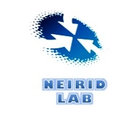Treatment of giant cell arteritis.
关键词
抽象
Giant cell arteritis (GCA) is the most common form of vasculitis in adults. Cranial manifestations are typical clinical features of this vasculitis. Sometimes the presenting symptoms are nonspecific and, in some cases, large-vessel involvement may prevail. Polymyalgia rheumatica is a frequent manifestation that in some cases may be the presenting symptom of GCA. Visual complications, in particular the risk of blindness, constitute the most feared manifestations of GCA. Prompt recognition of this vasculitis is required to avoid irreversible complications. Prednisone/prednisolone at a dose of 40-60 mg/day is the cornerstone therapy in GCA. Glucocorticoids lead to rapid improvement of symptoms and may reduce the risk of irreversible visual loss. However, relapses are common when the prednisone dose is tapered. Therefore, additional therapies are required in relapsing GCA or when a rapid reduction of glucocorticoids is needed. The most widely used conventional immunosuppressive drug is methotrexate Adjunctive treatment with methotrexate may decrease the risk of relapses and reduce glucocorticoid exposure. However, comprehensive reviews indicate that the efficacy of methotrexate in GCA is modest. The experience with other conventional immunosuppressive drugs in GCA patients is scarce. In some cases, the new biologic agents are required. Among them, the most frequently used is the recombinant humanized anti-IL-6 receptor antibody tocilizumab. It improves clinical symptoms, reduce the cumulative prednisone dose and the frequency of relapses in GCA patients. However, anti-tumor necrosis factor-α therapy is not useful in GCA. Promising results on other biologic agents, such as abatacept, ustekinumab or anakinra, require further confirmatory studies.


